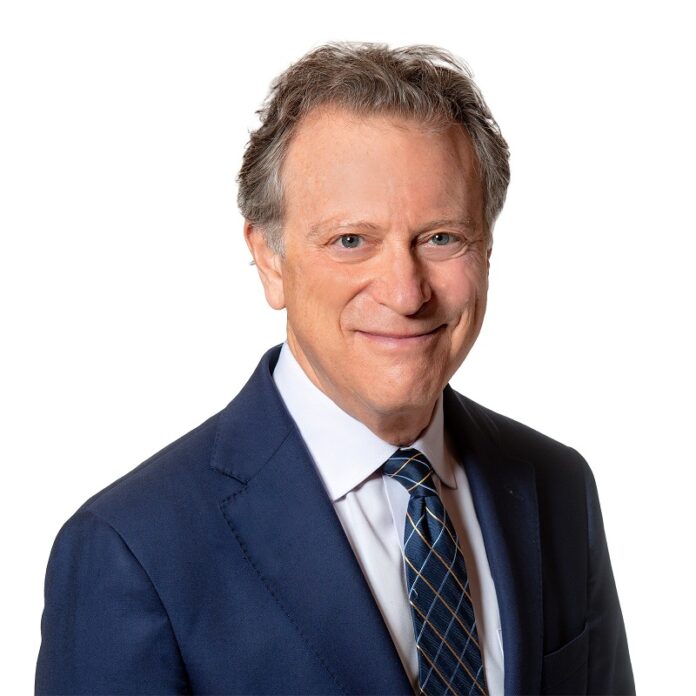PREVENTING plastic waste, reducing emissions and creating clean-tech jobs are just a few benefits of the 14 new projects under the CleanBC Plastics Action Fund, as well as a boost of more than double the previous funding for further projects.
The Province is providing more than $8 million to recipients through two funding streams: reducing plastic waste through reuse, or increasing the use of post-consumer recycled plastic through processing and manufacturing. A third funding stream for Indigenous-led projects is continuing to accept applications. An announcement of funding recipients will follow. All projects must be complete by February 15, 2024.
“Today, our government has invested in 14 new, innovative projects and committed another $25 million to a third round of funding for the CleanBC Plastics Action Fund,” said George Heyman, Minister of Environment and Climate Change Strategy, on Friday. “This added funding will strengthen our ability to prevent plastic pollution and reduce our use of virgin resources to make plastic products by turning used plastic into an economic asset instead of an environmental burden.”
Phase 2 expanded upon the first round of funding for recycled plastics, with the addition of dedicated funding for businesses developing reuse systems and for Indigenous-led projects. The third funding intake will follow the same scope as the second round of funding.
“The CleanBC Plastics Action Fund encourages innovative technologies that point to a better way of making and using products,” said Mike Farnworth, MLA for Port Coquitlam. “From using recycled plastics to 3D-print modular homes and bathtubs, to increasing zero waste options, these companies are creating jobs and reducing our impact on the planet.”
To date, more than $12.5 million in government funding has been granted to 23 projects. This supports the CleanBC Plastics Action Plan’s goal of changing how plastic is designed and used – from temporary and disposable to durable and reusable. Under the fund, the Province supports up to two-thirds of eligible project costs.
“The funding we received through the CleanBC Plastics Action Fund is helping us expand our single-use mask, respirator and PPE recycling capacity,” said Mikhail Moore, president, Vitacore Industries Inc. “The first of its kind in Canada, our PPE recycling program effectively reduces the environmental impacts these items have on our landfills and oceans.”
Other CleanBC Plastics Action Plan strategies to support a circular economy for plastics include supporting municipal bans on single-use plastics, expanding producer-funded recycling programs and funding the largest shoreline cleanup of ocean plastics in provincial history through the Clean Coast, Clean Waters initiative.
Quick Facts:
* Over their life cycle, reusable products generally produce fewer emissions, consume less water, and decrease waste, litter and pollution compared to disposable alternatives.
* B.C. is a leader in extended producer responsibility (EPR), where companies and producers are responsible for the collection and recycling of the products they create.
* 315,000 tonnes of plastics are captured annually in B.C.’s EPR programs.
* The recycling of new waste products is being phased in provincewide as part of a five-year plan, including electric-vehicle batteries, mattresses, compressed gas canisters and medical sharps, such as syringes and needles.
* The Clean Coast, Clean Waters initiative has cleaned nearly 4,000 kilometres of shoreline, removed more than 1,000 tonnes of debris, and recycled or upcycled 65% of recovered shoreline materials.
Learn More:
The CleanBC Plastics Action Fund Phase 3 web page can be found here: alacritycleantech.com/
BACKGROUNDER
CleanBC Plastics Action Fund: Phase 2 recipients
Funding of $8 million will support 14 projects.
Recycling Funding Stream:
Advanced BioCarbon 3D – Rossland
Program funding: $514,703
Aiming to lower the cost of housing, the funding will support affordable 3D-printed modular houses made from upcycled post-consumer plastic enhanced with bio-additives, such as lignin and hemp fibres.
KC Recycling Ltd. – Trail
Program funding: $900,000
Funding will support the building of a specialized plastic recycling plant. It will accept plastic battery cases, car seats and paint buckets, recycling 3,500 metric tonnes of polypropylene per year.
Metaspectral – Vancouver
Program funding: $419,226
The company will develop and install technology to automate the separation of plastic homopolymer HDPE (i.e., plastic milk containers) from other containers made of copolymer HDPE, with the aim of achieving greater than 90% sorting accuracy.
Ocean Legacy Foundation – Richmond
Program funding: $574,229.60
Funding will address marine-plastic waste by increasing internal processing capacity, developing new processing capabilities (nylon), installing in-house testing facilities, and creating employment opportunities in rural and remote areas.
Plascon Plastics Corp. – Delta
Program funding: $509,691
Funding will be used to create a threaded tamper evident closure (child-proof bottle cap) for the distilled spirit market, made from 100% recycled material that will be recyclable.
The Rogerie – Kelowna
Program funding: $70,000
The company will build and launch a custom 3D printer capable of producing items up to 1x1x2 metres (3x3x6 feet) into production. It will be used to produce and sell the first 100% recycled bathtub.
Van WasteCo Inc. – Delta
Program funding: $720,000
New equipment will increase post-consumer recycled plastic production capacity and produce new recycled plastic products that can be used for a wider range of possible applications.
Vitacore – Port Coquitlam
Program funding: $900,000
Funding will upgrade equipment and retrofit a building to serve as the hub of the company’s PPE recycling program. The factory will process 12.5 million masks and respirators per month.
Wenplastics – Delta
Program funding: $1,392,151
As the only system in Western Canada that can process large industrial pipes, the funding will increase the processing capacity of waste from the mining industry, pallet factories and franchised supermarkets by 150%.
Reuse Funding Stream:
Eco Refillery – Vancouver
Program funding: $66,000
The funding will be used to open a second zero-waste plastic refill store in Metro Vancouver.
Fresh Prep – Vancouver
Program funding: $346,872.50
The project funding will establish a sustainable, closed-loop system that supports their zero-waste food prep packaging. It will also reduce the use of single-use plastics, and increase the use of post-consumer recycled plastics in their manufacturing and product line.
Nada – Vancouver
Program funding: $300,000
The project will develop and launch a new revenue stream of business-to-business sales, creating the opportunity to increase reuse in the business community.
Reusables – Vancouver
Program funding: $995,000
The funding will increase the cleaning capacity and accessibility of reusable packaging in industrial, commercial and institutional organizations, and food businesses in B.C., including remote and Indigenous communities. This will save seven tonnes of plastic waste and 23 tonnes of carbon-dioxide equivalent emissions from entering the environment each month.
Sharewares – Metro Vancouver
Program funding: $302,127.25
The project will upgrade the current washing facility to process up to 100,000 reusable products per day to meet the needs of big brands, festivals, stadiums, etc. The company will share learnings and outcomes to serve as a model for other regions.












